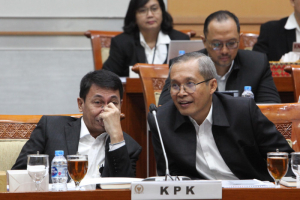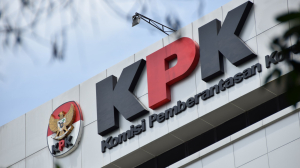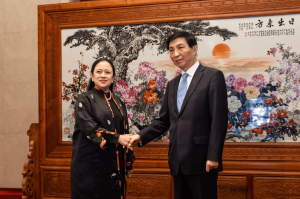E-KTP graft suspect Paulus Tannos arrested in Singapore, extradition underway
The Corruption Eradication Commission (KPK) has arrested Paulus Tannos, a key player in the e-KTP mega project corruption case that had ensnared Setya Novanto, former Speaker of the House of Representatives (DPR).
Fitroh Rohcahyanto, Deputy Chairman of the Corruption Eradication Committee (KPK), said that currently the extradition process from Singapore, where Tannos was recently arrested in a sting operation, to Indonesia is being carried out.
"The KPK has currently coordinated with the National Police, the Attorney General's Office and the Ministry of Law to complete the necessary requirements in order to be able to extradite the person to Indonesia to face prosecution as soon as possible," Fitroh said on Friday, January 24, 2025.
Tannos, President Director of PT Sandipala Arthaputra, along with three other people, namely former President Director of the State Printing Company (PNRI) Isnu Edhy Wijaya; member of the House of Representatives (DPR) for the 2014-2019 period Miriam S. Haryani; and Husni Fahmi, Head of the Information Technology Technical Team for the Implementation of e-KTP.
They were named as suspects in the alleged corruption of the e-KTP mega project in August 2019. Meanwhile, Paulus Tannos has been on the KPK's Wanted List (DPO) since October 19, 2021.
PT Sandipala Arthaputra, which is under the auspices of Tannos, is one of the parties that has benefited from the alleged corruption case of the e-KTP mega project.
Meanwhile, the state losses in this case are estimated to reach Rp2.3 trillion (US$142.5 million). On the other hand, PT Sandhipala Arthaputra is said to have received Rp145.8 billion.
It is suspected that Tannos held a meeting to discuss the winning of the PNRI consortium in the e-KTP project tender and agreed on a fee of 5 percent as well as a scheme for sharing the fee burden that would be given to several members of the DPR and officials from the Ministry of Home Affairs.
Tag
Already have an account? Sign In
-
Start reading
Freemium
-
Monthly Subscription
30% OFF$26.03
$37.19/MonthCancel anytime
This offer is open to all new subscribers!
Subscribe now -
Yearly Subscription
33% OFF$228.13
$340.5/YearCancel anytime
This offer is open to all new subscribers!
Subscribe now






